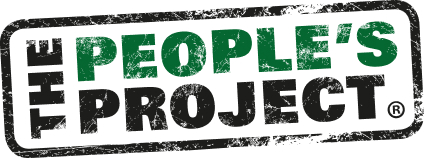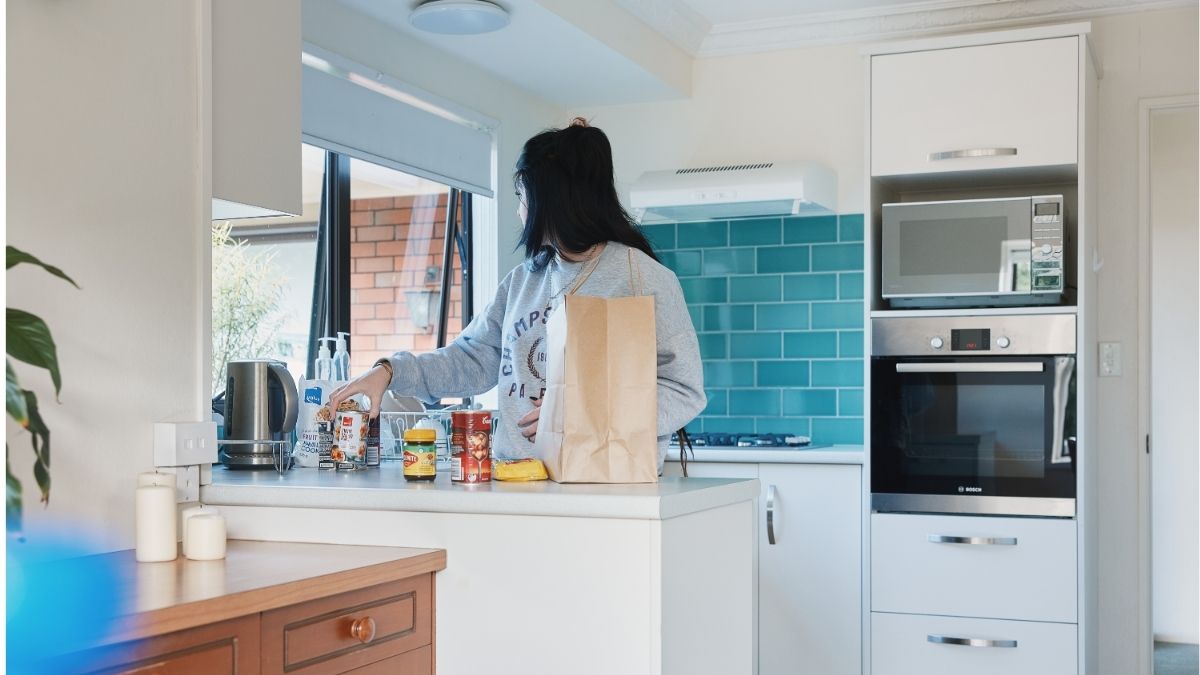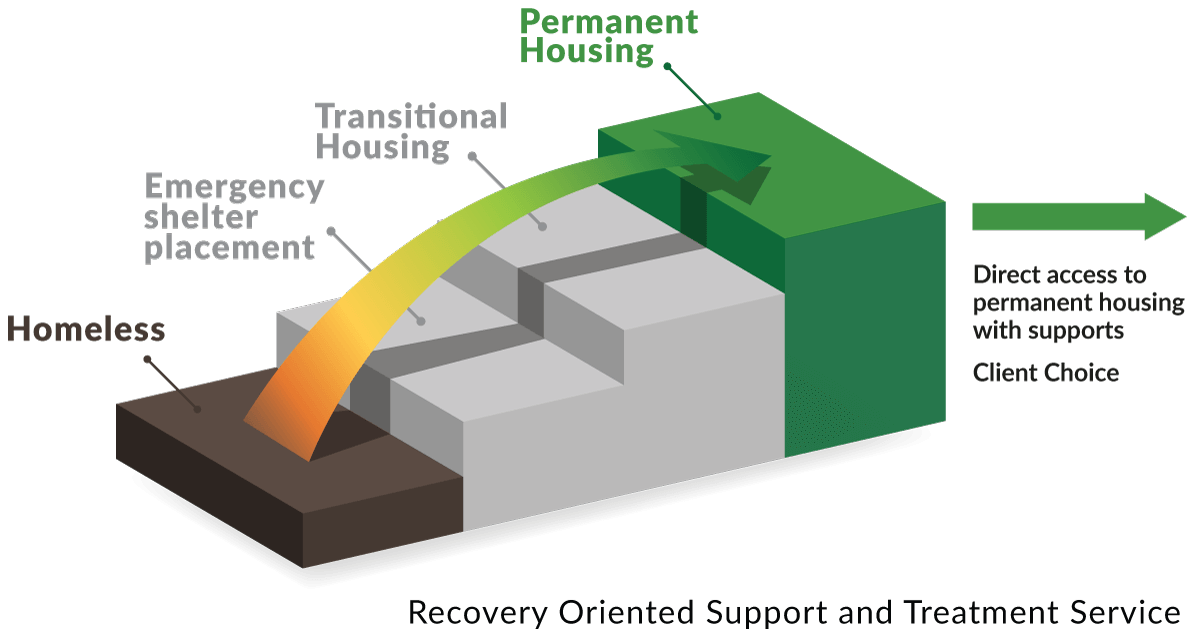On this page
An internationally proven, evidenced-based approach
The People’s Project was established in 2014 to address concerns about the growing number of people living on the streets or sleeping rough in Hamilton.
The Wise Group recognised that an evidence-based approach was needed to end – rather than manage – homelessness. The first task was to learn about what was happening around the world, to find out who was having the most success and what they were doing. The Housing First approach was achieving enviable results and international recognition and this was the model adopted for The People’s Project.
How does Housing First work?
In 1992, Dr Sam Tsemberis, a clinical-community psychologist at Columbia University Medical Center’s psychiatry department asked people they were working with what they needed. Those conversations led to the idea of simply giving people experiencing homelessness the keys to a home, with no tests, no transitional housing, nor sobriety programmes required. All they had to do was sign a tenancy agreement and agree to visits from his team. The team helped them to be successful tenants and get access to any healthcare, therapy, counselling, or other services they wanted.
The premise was to treat people as members of the community who have a basic right to a home and healthcare. Dr Tsemberis called this approach Housing First. Today, studies around the world have proven that Housing First ends homelessness for between 80 to 88% of people.
The Housing First approach recognises that it is easier for people to address issues, such as mental health and substance use, once they are housed. The priority is to quickly move people into appropriate housing and then immediately provide wrap-around services to support their success. The goal of Housing First is to end homelessness.
Today, Dr Tsemberis leads Pathways Housing First, which trains organisations, conducts research projects, and influences policy related to Housing First.
Five Core principles
The Housing First approach is underpinned by five principles:
- Immediate access to housing with no readiness conditions
Housing is offered with no readiness conditions such as sobriety or proof of engagement in medical treatments. It just requires a willingness to engage with support services and to be in housing. Housing First providers find people housing that fits the needs of each person, which could be a private rental, public housing or supported living. - Consumer choice and self-determination
People have choices about the housing and support that’s right for them. For example, some may prefer their own self-contained flat or house and want regular visits with a support worker. Others may decide that a supported living arrangement works best for them. Choice may be constrained by availability and affordability. - Individualised and person-centred support
Support is given according to each person’s needs, for as long as needed. Housing First providers work with a range of health and social services to make sure the person gets the specialist support they need. The supports provided are individualised and person-driven. - Harm reduction and recovery-orientation approach
Recovery focus with holistic support to reduce potentially harmful behaviours and make positive steps towards wellbeing. - Social and community integration
People are encouraged and supported to be part of their communities and connect with whānau, support networks, social activities, education and work.
Collaborating with our communities
We believe that one organisation acting alone cannot end homelessness. From the outset, The People’s Project has worked together with stakeholders in our communities in Kirikiriroa Hamilton and Tauranga Moana. These include local government, government ministries, health agencies, iwi, other NGOs, and more.


